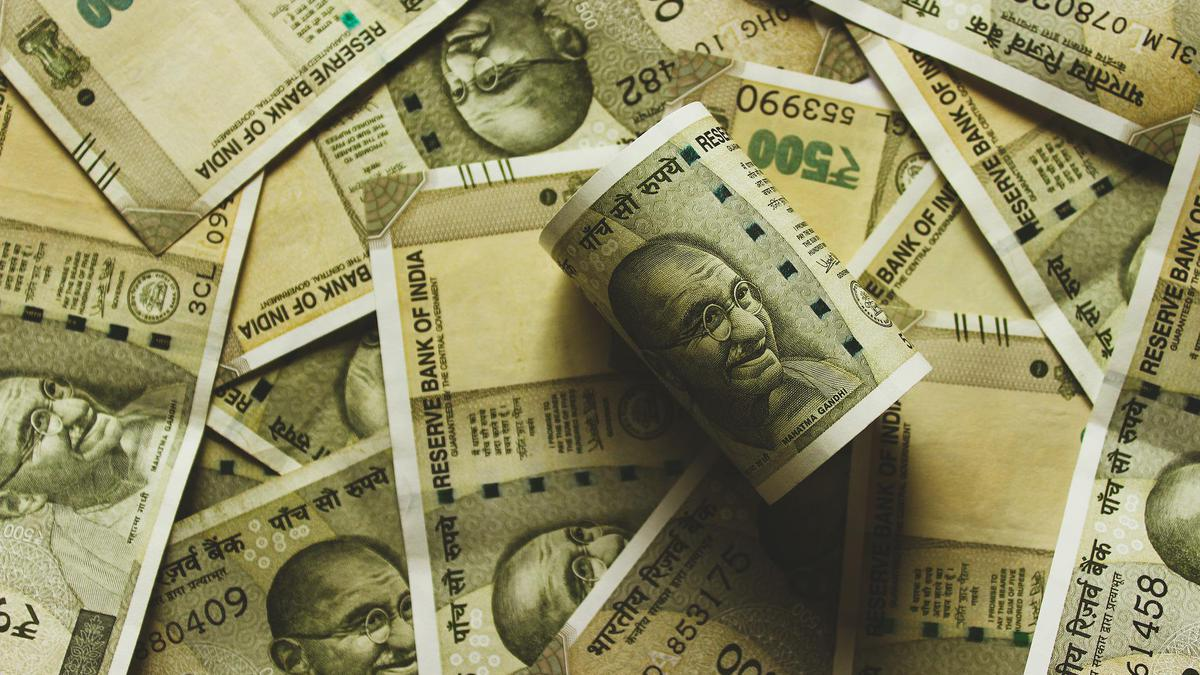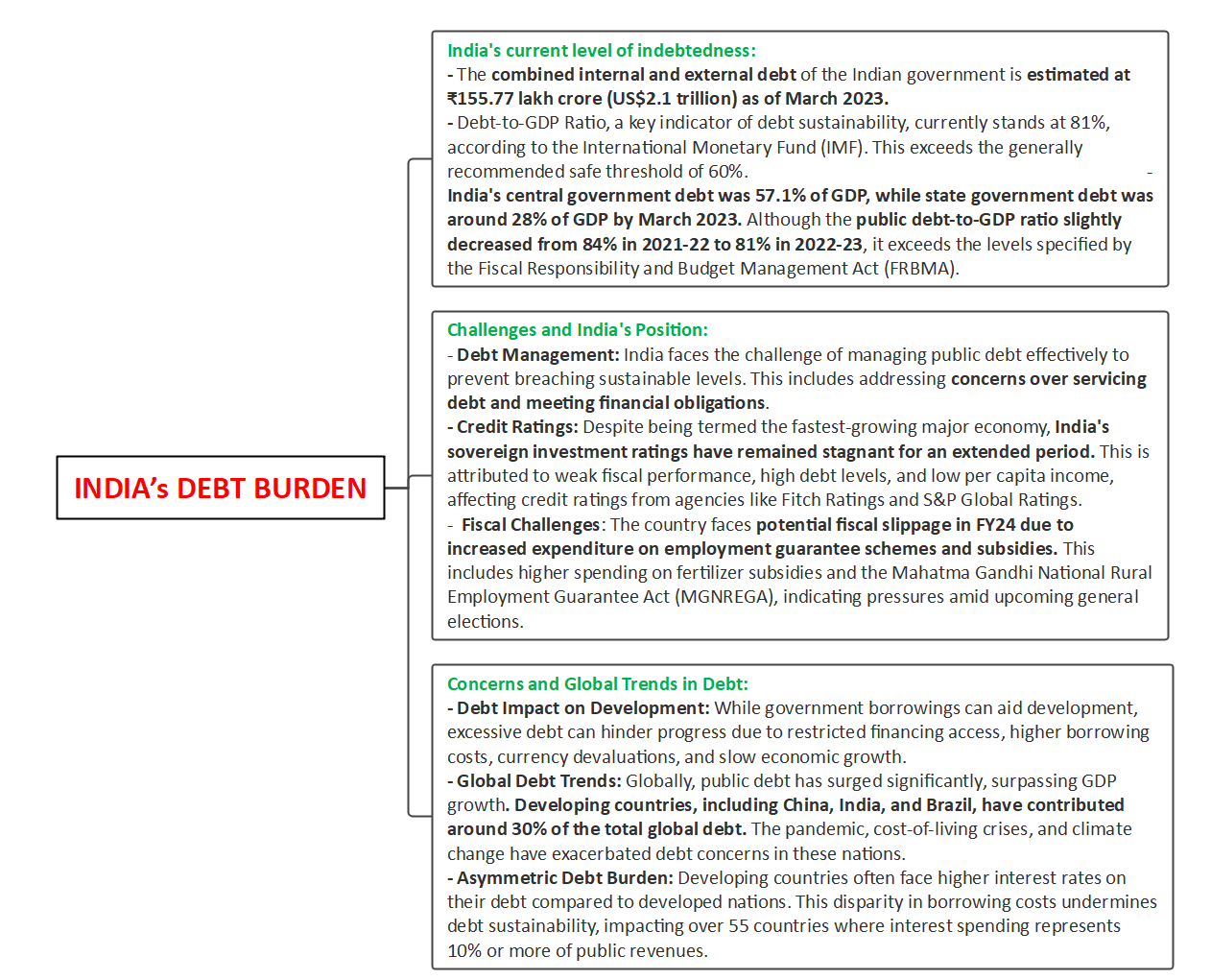Free Courses Sale ends Soon, Get It Now


Free Courses Sale ends Soon, Get It Now



Copyright infringement not intended
Picture Courtesy: THE HINDU
Context: The Union Finance Ministry recently responded to the International Monetary Fund's (IMF) scenario-based assessment, which warned of the potential for India's government debt to reach 100% of GDP by 2027-28 under adverse circumstances.
IMF's Assessment
Finance Ministry's Response

Conclusion
|
PRACTICE QUESTION Q. How is India managing the challenges posed by its increasing national debt, and what strategies are being considered to address this issue in the long term? |
© 2024 iasgyan. All right reserved